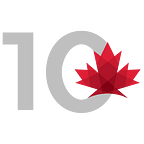How to Change Culture in Government?
By Melanie Coulson
‘Culture eats strategy for breakfast,’ Management Consultant Peter Drucker once said. How then to change culture in the public service to further an open government strategy?
Among the many points raised at the recent Canadian Open Dialogue Forum, this question and one main theme emerged:
The culture in government needs to change.
The audience, made up of public servants, politicians and open government practitioners, gathered at the Open Dialogue Forum to talk about citizen engagement and how to include the public in the policymaking process.
Attendees grappled with the question:
How does one go about changing culture in government?
Changing workplace culture isn’t easy. Change in a mammoth organization like the public service is intimidating, to be sure. (Note: The federal public service is Canada’s largest employer, with a staff of more than 500,000 people.)
Open Text Board Chair Tom Jenkins first brought up the requirement of a culture change during his keynote address. He pointed to the startups in Waterloo, Ontario and that entrepreneurs are keen to learn from failure.
“The secret of Waterloo is that there is a lack of fear of failure,” Jenkins said. “There is a celebration of experience and what you’re going to try next.”
He said that same eagerness to take chances needs to happen in the public service also.
“It’s important there is a vibrant, robust discussion about taking chances in the public service,” Jenkins said.
During the Senior Leaders’ panel, Google’s Colin McKay pointed out that assuming risk and failure is inherent in digital companies. He asked:
“Can government support public service employees in taking risks?”
Judy Foote, Minister of Public Services and Procurement, told the conference she is working hard to change the culture in her area of the public service. She noted that when she first went to work at her department, staff wouldn’t look her in the eye or say hello when she entered the building.
Foote is working to change the culture by connecting better with her staff. She invites members of the department up to her office on the 18th floor for coffee.
“The onus is on us to do this as leaders first, and then employees in government. Industry will follow,” Foote said.
“If my task is to modernize procurement, I need to be open to new ways of doing things,” she added.
Wayne Wouters, former Clerk of the Privy Council, applauded Foote’s efforts in openness.
One conference attendee said that culture change has to come from the top — ministers can set the tone in their departments.
Deb Matthews, Ontario’s Deputy Premier, highlighted the real difficulty government has in taking a ‘let’s just try this — it might fail’ approach. For her collaboration is key.
“We’re not allowed a failure on version 1.0 in government,” Matthews said. “We need third parties to help voice thoughts.”
Matthews pointed out that aversion to risk is driven by a political landscape that includes an opposition and media waiting to point out a government’s mistakes.
On Twitter, Matthews was praised for pointing out the real concerns that many in the public service feel:
Paul Born of the Tamarack Institute, spoke with Matthews about his Vibrant Communities initiative, said senior executives in government can say ‘go forth and talk to people,’ but they have to say it every day for everyone to believe it.
“We as citizens need to let civil servants know that it is okay to take intelligent risks. It is okay listen to the public as a partner,” Born said.
One suggestion for culture change came from Ailish Campbell, Associate Assistant Deputy Minister at Finance Canada. She suggested via Twitter that culture change will happen when a government changes the way it looks at the citizens.
Two days after the conference, Campbell continued this thought, tweeting:
“Open government shouldn’t be a ‘Yes, Minister’ episode.”
The question of how to change the culture in government was posed to Ontario Premier Kathleen Wynne, after her keynote address.
Wynne pledged that her government’s new Digital Action Plan will drive change across government, and put the focus on putting citizens first and finding new talent.
“We have to design digital services that put people first, we need to think about how we serve Ontarians,” Wynne said.
Treasury Board President Scott Brison spoke of the need for culture change to open government and make the public service a more attractive career option for Millennials.
“It will make government more appealing to them, and to have them help us open it.”
Wynne echoed Brison’s thoughts that bringing more millennials into the public service will help drive change in government.
Wynne noted it’s important not just to hire a younger public service, but keep that demographic in the province.
While government speakers called on industry to lead dialogue with government, Tom Jenkins, Board Chair for Open Text, said in his keynote address that change has to come from government.
“If the public sector doesn’t lead this for Canada, it won’t have an impact,” Jenkins said. “Leading open dialogue will set the bar for other organizations, NGOs, etc. Whoever leads change, it needs to happen soon.”
“If other countries go faster than us, they will be better than us.”
Melanie Coulson is the Director, Content & Engagement at Canada 2020.
Canada 2020 is Canada’s leading, independent, progressive think-tank working to redefine the role of the federal government for a modern Canada. Founded in 2006, Canada 2020 has spent a decade publishing original research, hosting events, and starting conversations about Canada’s future. Our goal is to build a community of progressive people and ideas that will move and shape governments.
